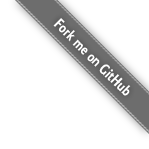<solver>
...
<scoreDirectorFactory>
...
</scoreDirectorFactory>
<!-- No longer required to configure <constructionHeuristic> and <localSearch> -->
</solver>Release Notes 6.3
We are happy to announce a 6.3 Final release of OptaPlanner. OptaPlanner is a lightweight, embeddable planning engine written in Java™ to solve AI constraint optimization problems efficiently. Use cases include Vehicle Routing, Employee Rostering, Maintenance Scheduling, Task Assignment, School Timetabling, Cloud Optimization, Conference Scheduling and many more.
- Stable: Lots of unit, integration and stress tests
- Reliable: Used across the world in production
- Scalable: To billions of constraint matches with minimal RAM and CPU time
- Documented: Read the detailed reference manual and the many examples
- Open Source: Apache License 2.0
The RHDM version differs from the OptaPlanner version:
| RHDM version | OptaPlanner version |
|---|---|
| 7.8 | 7.39 |
| 7.9 | 7.44 |
| 7.1 | 7.48 |
| 7.11 | 8.5 (and 7.52) |
| 7.12 | 8.11 (and 7.59) |
| 7.13 | 8.13 (and 7.67) |
New and noteworthy
Easier solver configuration
Defining the optimization algorithms and their parameters is now optional (but still possible and desirable for power users). If you don’t define any solver phases, a default Construction Heuristic followed by a default Local Search is used.
Automatic scanning for annotated classes
Instead of declaring all annotated classes:
<solver>
<solutionClass>org.optaplanner.examples.cloudbalancing.domain.CloudBalance</solutionClass>
<entityClass>org.optaplanner.examples.cloudbalancing.domain.CloudProcess</entityClass>
...
</solver>Planner can now also automatically scan for them instead:
<solver>
<scanAnnotatedClasses/>
...
</solver>It’s even possible to limit the scan to specific packages.
Field annotations
Instead of getter annotations (on JavaBean properties), Planner now also supports field annotations:
@PlanningEntity
public class CloudProcess {
@PlanningVariable(valueRangeProviderRefs = {"computerRange"})
private CloudComputer computer;
...
}@PlanningSolution
public class CloudBalance ... {
@ValueRangeProvider(id = "computerRange")
private List<CloudComputer> computerList;
@PlanningEntityCollectionProperty
private List<CloudProcess> processList;
...
}Unfolding move selectors for multiple entity classes or multiple planning variables
With multiple planning variables, it’s no longer needed to specify each variable name:
<changeMoveSelector>
<valueSelector>
<variableName>period</variableName>
</valueSelector>
</changeMoveSelector>
<changeMoveSelector>
<valueSelector>
<variableName>room</variableName>
</valueSelector>
</changeMoveSelector>Instead, this now works:
<changeMoveSelector/>With multiple entity classes, it’s no longer needed to specify each entity class:
<changeMoveSelector>
<entitySelector>
<entityClass>...CoachEntity</entityClass>
</entitySelector>
</changeMoveSelector>
<changeMoveSelector>
<entitySelector>
<entityClass>...ShuttleEntity</entityClass>
</entitySelector>
</changeMoveSelector>
<swapMoveSelector>
<entitySelector>
<entityClass>...CoachEntity</entityClass>
</entitySelector>
</swapMoveSelector>
<swapMoveSelector>
<entitySelector>
<entityClass>...ShuttleEntity</entityClass>
</entitySelector>
</swapMoveSelector>Instead, this now works:
<changeMoveSelector/>
<swapMoveSelector/>This applies to the programmatic API too, of course.
VariableListeners now trigger in a smart order
In advanced use cases with multiple custom shadow variables (or even just one),
the immediate order in which a VariableListener was triggered could drive a developer insane
because (s)he had to deal with intermediate, inconsistent states for which not all of the genuine variables were already changed.
This has been fixed. OptaPlanner now triggers the VariableListener.after*() methods in the order defined by the shadow variable dependency graph.
It guarantees that the first VariableListener triggers after the last genuine variable has changed.
It also guarantees that the second VariableListener triggers after all the first VariableListener calls are done, and so on.

New Benchmarker bluePrints
There are 2 new benchmarker blueprints:
-
EVERY_LOCAL_SEARCH_TYPE
-
EVERY_CONSTRUCTION_HEURISTIC_TYPE_WITH_EVERY_LOCAL_SEARCH_TYPE
It’s now even easier to try out all Local Search algorithms:
<plannerBenchmark>
<benchmarkDirectory>local/data/cloudbalancing</benchmarkDirectory>
<inheritedSolverBenchmark>
...
</inheritedSolverBenchmark>
<solverBenchmarkBluePrint>
<solverBenchmarkBluePrintType>EVERY_LOCAL_SEARCH_TYPE</solverBenchmarkBluePrintType>
</solverBenchmarkBluePrint>
</plannerBenchmark>New example: Investment asset class allocation
To optimize an investment portfolio. See this video. Partially contributed by Satish Irrinki.
Other improvements
-
A bi-directional relationship with a planning variable is now also supported for a non-chained variable.
-
2 shadow variables can now share the same
VariableListenerinstance. -
ValueRangeProvidernow supportslongranges withcreateLongValueRange(from, to)too. -
ValueRangeProvidernow supportsBigIntegerranges withcreateBigIntegerValueRange(from, to)too. -
Improved
Move.toString()methods for more clearer log messages. -
Benchmarker report mentions logging level used. Contributed by Matej Čimbora.
-
Documentation for Android. Contributed by Tomáš David.
-
Benchmarker’s
<solverBenchmark>name now allows non-ASCII characters too (for example Japanese characters). -
An OSGi
features.xmlthat includesoptaplanner-engine -
Drools score calculation now support multiple constraint matches in the consequences part of a rule.
-
More JavaDocs, including package JavaDocs.
-
Various bugs resolved. See our issue tracker.
Upgrade your code to 6.3
The best and easiest way to upgrade to this new version of OptaPlanner is by following the upgrade recipe.
New features in older releases
Read the previous release notes to learn about the new and noteworthy in previous releases.
-
Wed 6 September 2023
-
Thu 27 April 2023
Anna Dupliak
-
Mon 24 April 2023
Radovan Synek
-
Tue 21 February 2023
Lukáš Petrovický
-
Tue 15 November 2022
Geoffrey De Smet
-
Wed 9 November 2022
Radovan Synek
-
Tue 6 September 2022
Geoffrey De Smet
-
Thu 9 June 2022
Radovan Synek
-
The Vehicle Routing Problem
Fri 23 September 2022
Geoffrey De Smet
-
Introduction to OptaPlanner AI constraint solver
Thu 25 August 2022
Anna Dupliak
-
On schedule: Artificial Intelligence plans that meet expectations
Sat 23 July 2022
Geoffrey De Smet
-
Host your OptaPlanner app on OpenShift (Kubernetes)
Mon 7 February 2022
Geoffrey De Smet
-
OptaPlanner - A fast, easy-to-use, open source AI constraint solver for software developers
Mon 31 January 2022
-
Order picking planning with OptaPlanner
Fri 31 December 2021
Anna Dupliak
-
AI lesson scheduling on Quarkus with OptaPlanner
Thu 18 November 2021
Geoffrey De Smet


